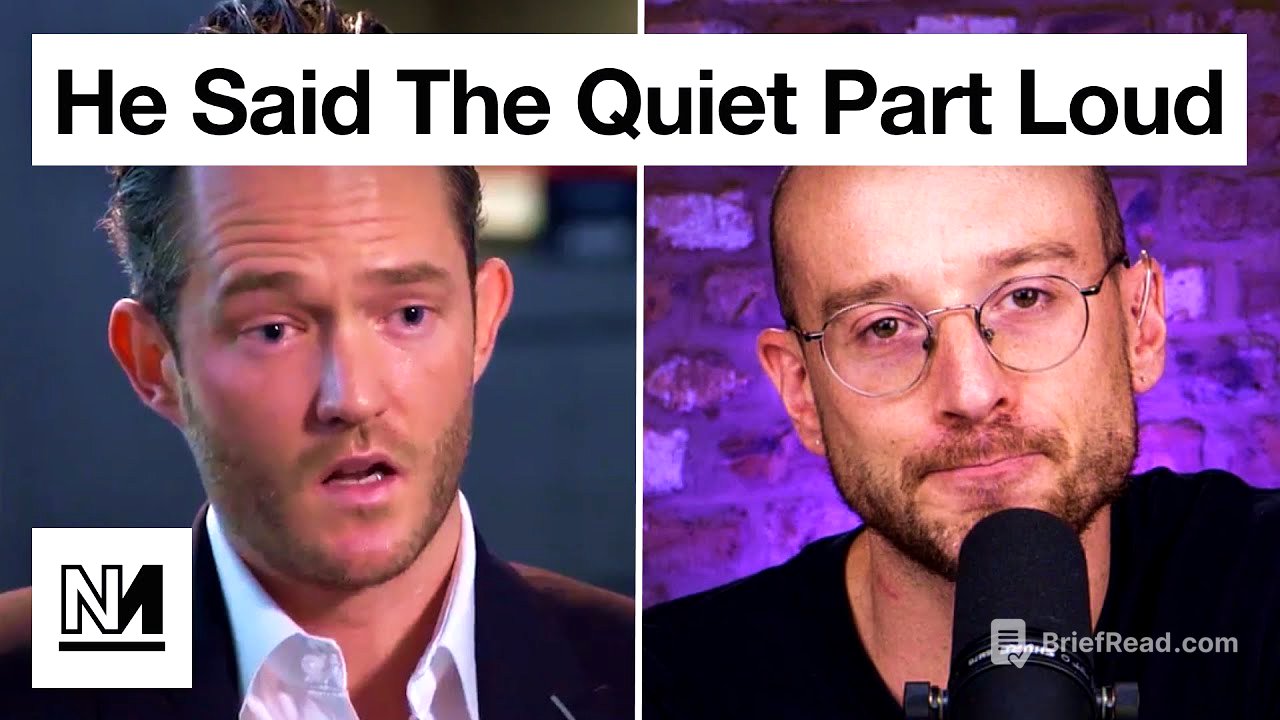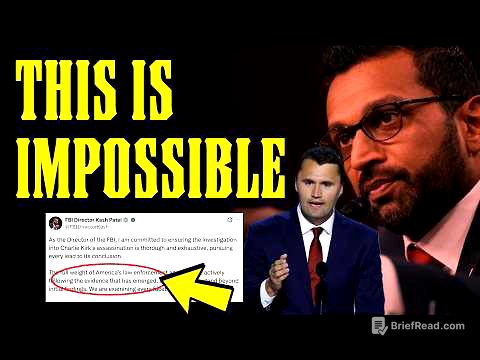TLDR;
The video analyzes controversial statements made by Australian property developer Tim Gurner, who suggested that rising unemployment and economic pain are necessary to remind workers of their place and reduce their arrogance. It connects Gurner's views to the economic theories of Michał Kalecki, who argued that capitalists benefit from a level of unemployment to maintain control over the workforce. The discussion also touches on how intentional precarity, such as the housing crisis, serves to discipline workers and prevent them from demanding better conditions.
- Tim Gurner's statements reflect a capitalist desire to control workers through economic insecurity.
- Michał Kalecki's theories explain how full employment can threaten the power dynamics in capitalism.
- Intentional precarity, like housing crises, is used to discipline the workforce.
Introduction [0:00]
The video begins by addressing recent global challenges such as the pandemic and the war in Europe, which have fueled inflation. It then pivots to controversial statements made by Australian property developer Tim Gurner, who believes that workers have become too comfortable and less productive. Gurner advocates for increased unemployment and economic hardship to restore the traditional employer-employee dynamic, where workers are reminded of their dependence on their employers.
Tim Gurner's Controversial Statements [0:12]
Tim Gurner's remarks at an investor conference sparked outrage by suggesting that unemployment needs to rise significantly to instill pain in the economy and remind workers that they "work for the employer, not the other way around." He claimed that employees have become arrogant, and governments worldwide are trying to increase unemployment to correct this imbalance. Gurner's comments were perceived by many as sociopathic, yet they reflect a dominant consensus among policymakers in the capitalist world.
The Theories of Michał Kalecki [1:49]
The video connects Gurner's views to the economic theories of Michał Kalecki, a Polish economist who was more skeptical about capitalism than John Maynard Keynes. While Keynes believed that governments could manage capitalism to maintain full employment and low inflation, Kalecki doubted that capitalists would ever accept such a deal. In his 1943 essay, "Political Aspects of Full Employment," Kalecki argued that full employment would lead to social and political changes that would threaten the power of business leaders.
Kalecki's Argument on Unemployment [3:21]
Kalecki posited that bosses need the threat of unemployment to control workers. Generous unemployment benefits are ineffective, but low benefits combined with the threat of job loss create a vulnerable workforce. This vulnerability ensures workers are compliant and less likely to challenge their employers. Kalecki argued that the issue isn't technocratic, like inflation, but political, concerning the power dynamic between employers and workers.
Mask Off Moment [4:41]
The speaker expresses gratitude towards Tim Gurner for articulating the logic of Kalecki's theories so plainly, better than any leftist academic could. The outrage over Gurner's comments reveals how much faith people place in the system, which is only questioned when someone bluntly exposes its workings. The speaker relates this to the statistic that many renters are one paycheck away from homelessness, arguing that this precarity is by design to discipline the workforce.
Precarity as a Tool for Control [6:08]
Drawing on Marx's concept of a "reserve army of labor," the speaker explains that capitalism relies on a surplus population to discipline the working class. This surplus serves as a reminder of what workers could become if they don't comply. The speaker shares an anecdote about a family member who internalized the logic of capitalism, believing that the existence of marginalized and unemployed people motivates others to work harder.
Government Policies and Unemployment [7:50]
The speaker notes that central banks and institutions like the Bank of England intentionally encourage unemployment to control demand in the labor force. Despite claiming to view unemployment as a social ill, governments create and encourage it to discipline the workforce.
Tim Gurner's Past Controversies [8:36]
The video references a previous controversial statement by Tim Gurner in 2017, where he suggested that young people would never own homes due to spending habits like buying smashed avocado and coffees. The speaker points out the absurdity of this claim, noting the high cost of apartments and the impracticality of saving enough money. The speaker also highlights the irony of Gurner's own privileged start, having received loans from his grandfather to enter the property market.









